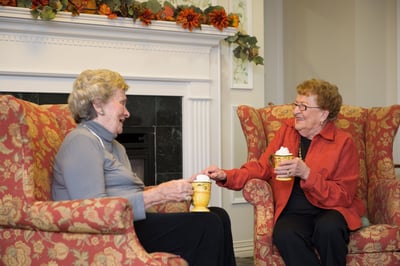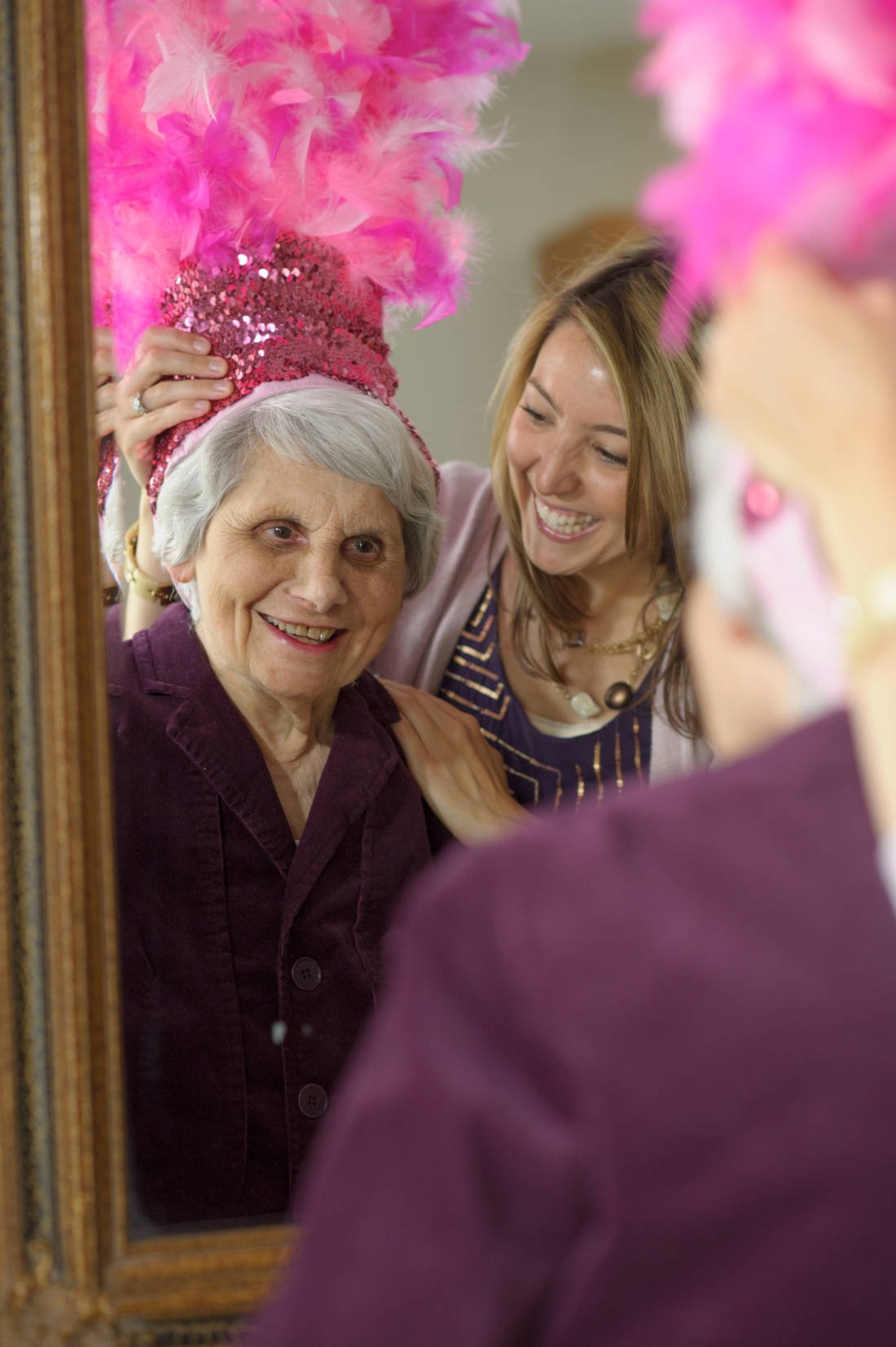4 Reasons Why Home is NOT Always Better for Older Adults
 The slogan “home is always better” is often used by senior home care companies to tout their services and dismiss the benefits of senior living communities. But the truth is, home is not always better for older adults -- despite what savvy marketers want you to think. Let’s take a closer look at four reasons why the family home may not be the better fit for your aging loved one.
The slogan “home is always better” is often used by senior home care companies to tout their services and dismiss the benefits of senior living communities. But the truth is, home is not always better for older adults -- despite what savvy marketers want you to think. Let’s take a closer look at four reasons why the family home may not be the better fit for your aging loved one.
1. Your loved one’s current physical environment is unsafe or unhealthy.
While many seniors profess to want to “age in place,” the safety of their physical environments must be factored into their equation. In many cases, the living space is no longer comfortable, manageable or adequate. For example, a home with multiple levels or excessive care and maintenance needs. Furthermore, even the day-to-day upkeep of a home can become overwhelming -- for seniors and their family caregivers.
According to the National Council on Aging, "Every 11 seconds, an older adult is treated in the emergency room for a fall; every 19 minutes, an older adult dies from a fall."
Many of these falls occur in the family home and one of the most challenging obstacles aging adults face in their homes are stairs. Stairs can be very dangerous for seniors and one misstep could lead to long-lasting injuries or even death. Of course, falls can happen anywhere, but single-story living is recommended for seniors who have a history of or nervousness about falling.
While a home care professional can help navigate these obstacles, the responsibility of ensuring the home’s safety still falls on the family. Conversely, senior living communities are not only designed to meet the physical needs of older adults, but also to accommodate these needs as they change.
2. Your loved one’s lack of socialization and/or isolation is a concern.
When seniors think about staying in their homes, they envision their lives continuing on as normal. Unfortunately, the reality is usually very different. Many of your aging loved one's peers will also be facing age-related challenges which may limit both their mobility and their availability. The result? A dwindling social network which can lead to loneliness, isolation and depression.
While home care services offer some companionship, they typically fall short of cultivating the sense of community seniors need to thrive. Senior living communities, meanwhile, are essentially ready-made social networks for seniors. With opportunities for dining with others and plenty of activities and events, senior living communities keep aging loved ones connected with life and the world around them.
3. Frankly, your loved one is bored and could use some motivation.
Without daily opportunities for engagement, the golden years can easily turn into days of simply “passing the time”. While learning is possible at any age, remaining in the home keeps older adults firmly within their comfort zone -- a comfort zone which may grow smaller and smaller as the years pass. Many caregivers notice the amount of time their loved ones spend in front of the TV and realize how true this is! While relocating to a senior living community may initially seem overwhelming, doing so represents a chance for seniors to broaden their horizons and enjoy exciting new perspectives on life. Many aging adults don’t realize how much is missing in their lives until they make a move to a senior living community and give it a try. It doesn’t take long for both the resident and their family to notice a difference. Many communities even offer trial stays for a few weeks.
4. As the caregiver, you’re looking for partnership in managing your loved one’s care.
While home care services attend to the specifics of day-to-day care, collaborative assisted living and wellness coordination may not be available in a way that best meets your family’s needs. Determining who is going to do what and when can become an all-encompassing job for family caregivers. This is not only extremely stressful, but can also interfere with meaningful time spent with aging loved ones.
If your loved one is taking medications, it's crucial that they're administered appropriately by someone who is trained and educated on medication management and administration. Often times, family members and friends step in to help, but this is a highly discouraged practice, as one mistake could cause tremendous problems. Medications are not something to be messed with or altered and they should only be handled by caregiving professionals.
In taking on active roles in your aging loved one’s care, senior living communities offer invaluable partnership aimed at comprehensively meeting an older adult’s changing care needs while alleviating the burden on family caregivers. Residents, their families, and nursing staff all work together to meet changing care needs and help plan for preventative and restorative healthy living.
One last thing to keep in mind? The words “aging in place” mean different things to different people. While home care fulfills the term in its most literal sense, senior living uniquely embraces the concept by helping aging adults not only live, but live well.
Key Takeaways
- While home care services agencies may want you to think that “home is always better,” there are many reasons this may not be true.
- Older adults who choose to stay in their homes face a number of different challenges, including issues pertaining to safety and mobility; loneliness, isolation and depression; and lack of opportunities for personal growth and development.
- The senior housing issue isn’t just about older adults, but also about the people who love them. While in-home care services do offer support, they may not offer a care management component -- an oft-overlooked, but equally critical function built into the assisted and independent living models.
About Marissa Salvesen
My journey into the world of senior living began when I started working for United Methodist Homes in 2010. Starting as an Activities Director at one of our award-winning assisted and independent living communities and then transitioning to Marketing and Promotions Manager for UMH, I now work as the Manager of Mission Development, fostering the Mission and Values of our organization. I love sharing stories about the many ways we build meaningful relationships and enrich the lives of those we serve, and am proud to be part of building UMH’s 140-year legacy of caring. Wondering what makes our communities such special places to live and work? Connect with me and find out!

Our Blog is a 2016 Platinum Generations Award Winner! The Generations Award is an annual international competition for excellence in senior marketing recognizing professionals who have communicated to the 50+ Mature Markets.



